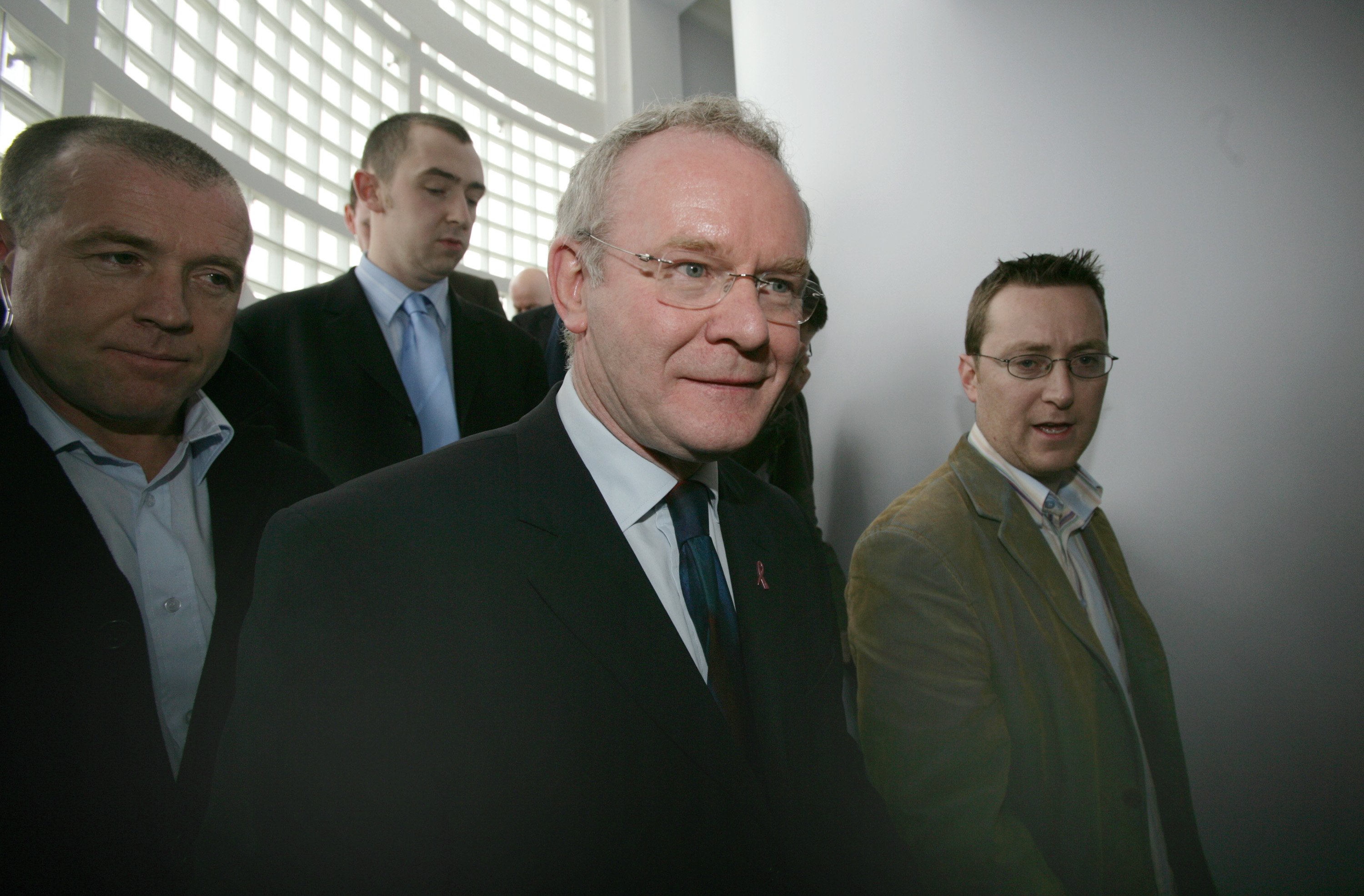
Dublin: Northern Ireland's deputy leader Martin McGuinness called for a vote to unite the two sides of the Irish border on Friday, as stocks tumbled and the damaging economic and political fallout from Britain's decision to quit the EU were immediately felt.
Ireland has the EU's fastest-growing economy but also more to lose than any other member state from Brexit with far-reaching implications for its trade, economy, security of energy supplies and peace in British-ruled Northern Ireland.
After 56 per cent of Northern Irish voters sought to remain in the EU compared to the 52 per cent of the United Kingdom as a whole who voted leave, Sinn Fein's McGuinness said it was imperative that London called a referendum on a united Ireland.
"The British government now has no democratic mandate to represent the views of the North in any future negotiations with the European Union and I do believe that there is a democratic imperative for a 'border poll' to be held," McGuinness told national Irish broadcaster RTE.
"The implications for all of us on the island of Ireland are absolutely massive. This could have very profound implications for our economy (in Northern Ireland)."
The call from Sinn Fein, Northern Ireland's largest Irish nationalist party, was later rebuffed by First Minister Arlene Foster.
Irish Prime Minister Enda Kenny, who has said his government had a full-scale contingency plan in place should its nearest neighbour and largest trade partner vote to leave, called an emergency cabinet meeting shortly after the result.
The outcome has very significant implications for Ireland and the EU as a whole, a government statement said.
Finance Minister Michael Noonan said earlier this week that an estimated cumulative Brexit-related hit on the Irish economy of as much as 1.6 percent of GDP would be "containable".
As the UK voted on Thursday, Noonan told parliament that while the downside was "definite", any upside was only speculative, referring to the possibility that some companies keen to stay in the EU might move from Britain to Ireland.
Irish exporters will be the first to suffer, as the pound weakened significantly against the euro, making their euro-priced goods more expensive. Foreign Minister Charlie Flanagan told Reuters on Wednesday that the government will have to consider helping firms exporting into Britain. Farmers and food producers, major UK suppliers, are especially vulnerable.
"This development is unambiguously negative for the Irish economy," said Philip O'Sullivan, chief economist at Investec Ireland.
Of most concern to Dublin is the impact on Northern Ireland, which has the only land frontier between the United Kingdom and the rest of the EU. It was marked by military checkpoints until a 1998 peace deal ended three decades of sectarian violence.
Flanagan said the reintroduction of a hard border would have to be considered in any negotiation and that the return of controls, for customs or security, could pose a difficult challenge for the peace process.
The dismantling of military border posts was a key aspect of the peace deal between Catholic nationalists seeking a united Ireland and Protestant unionists who wanted to keep Northern Ireland British. Over 3,600 died in the conflict.
Northern Ireland's pro-British First Minister Foster dismissed the call by her deputy, McGuinness, for a vote on Irish unity as "opportunistic".
Britain's Secretary of State for Northern Ireland may call such a vote at any time, according to the 1998 agreement.
It also specifies that the Secretary "shall" order a referendum if it appears likely that a majority of those voting would seek to form part of a united Ireland.
"There is no way even if there was a border poll that it would be in favour of a united Ireland," Democratic Unionist Party leader Foster told Northern Ireland's Radio Ulster.